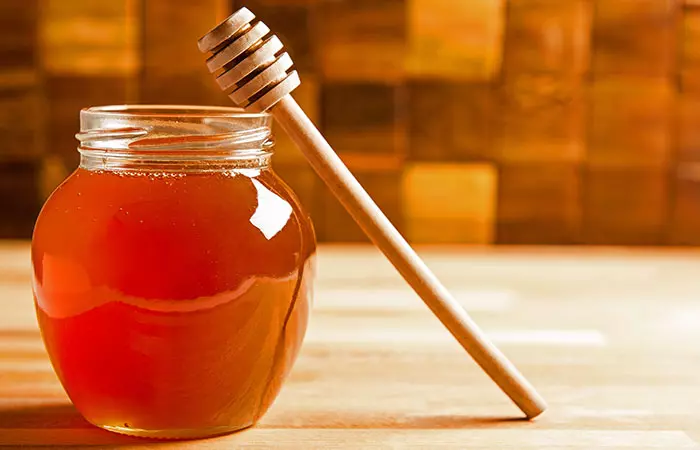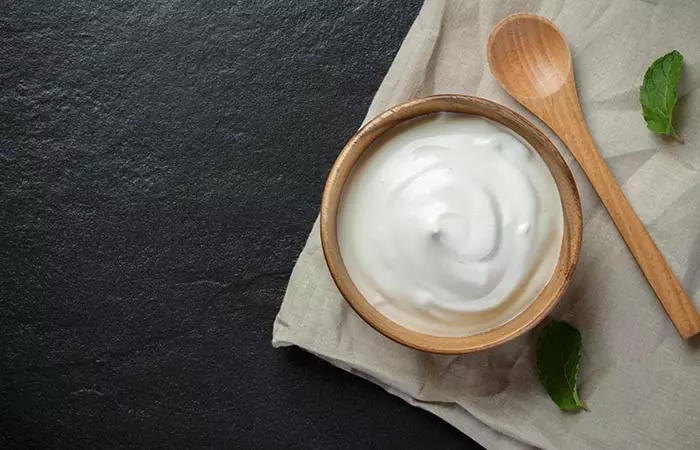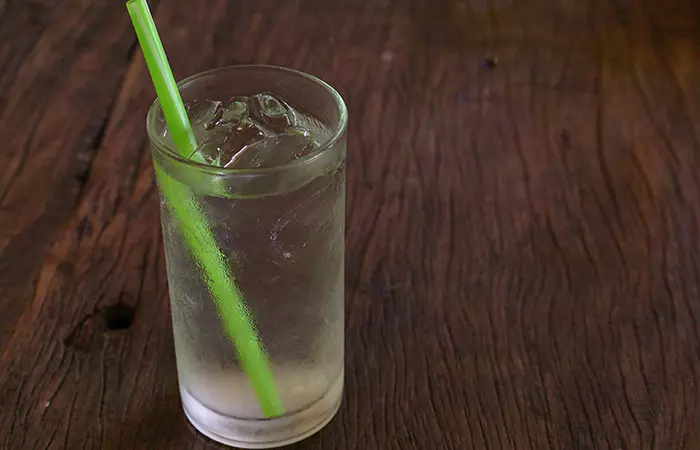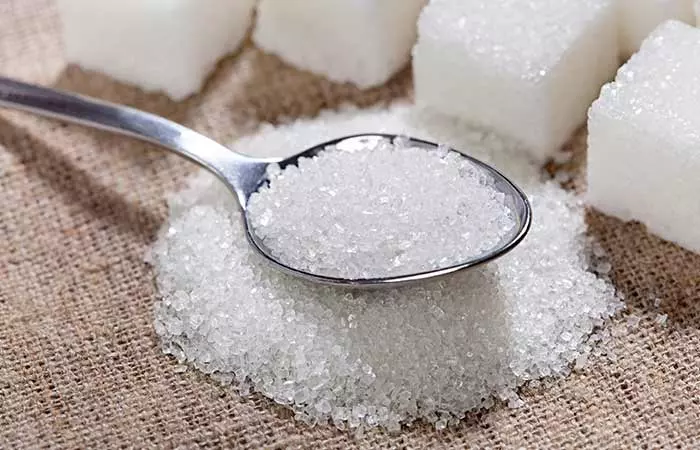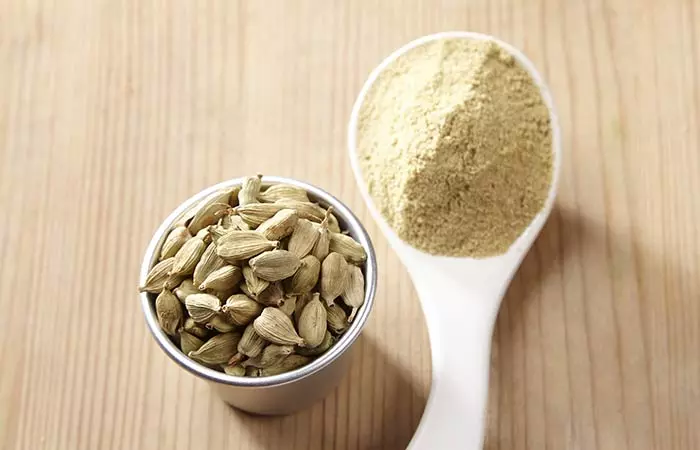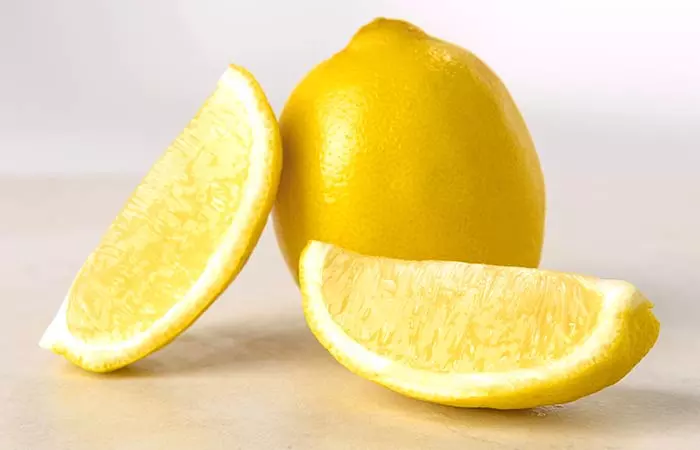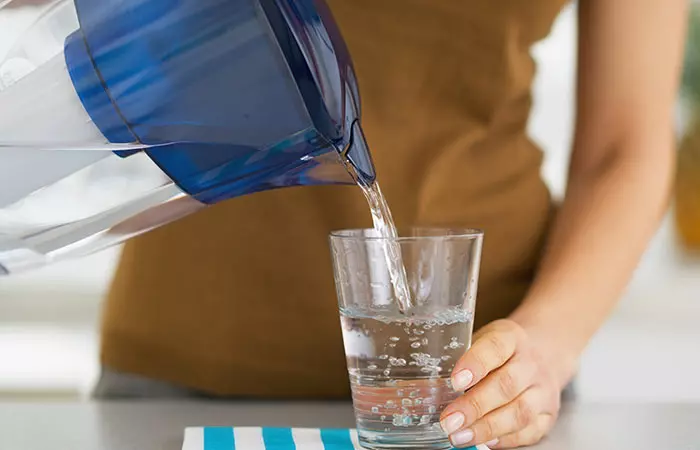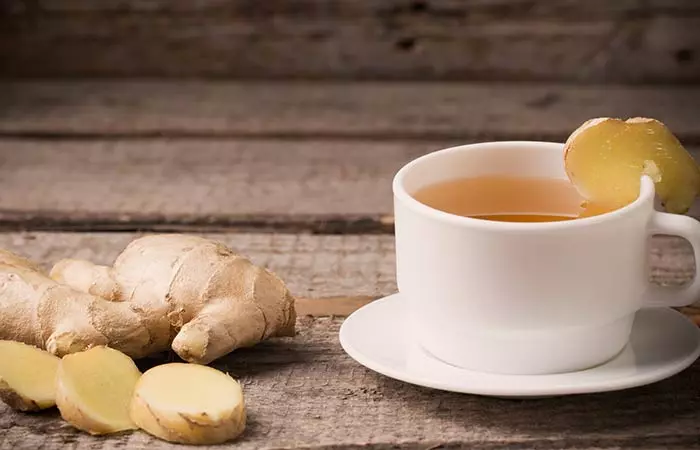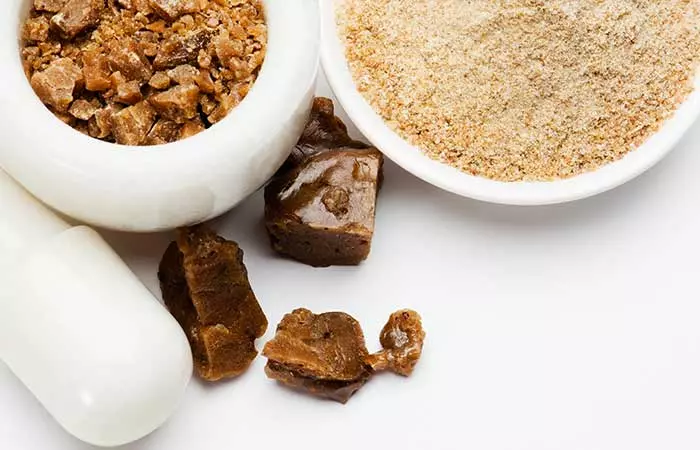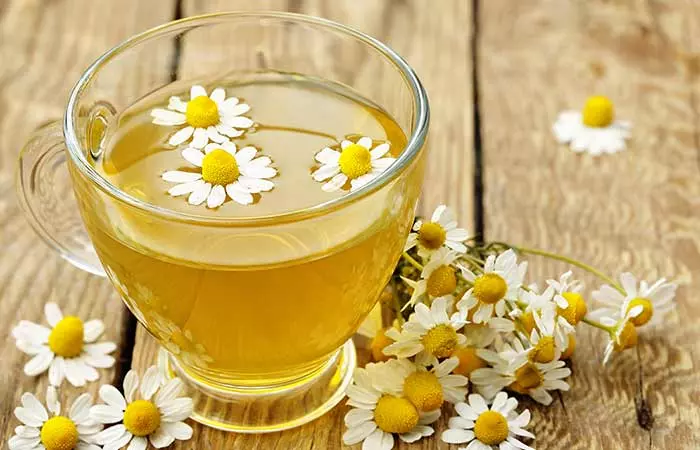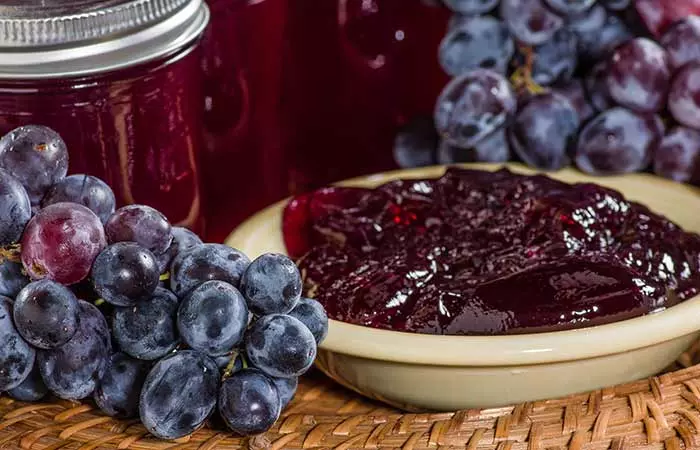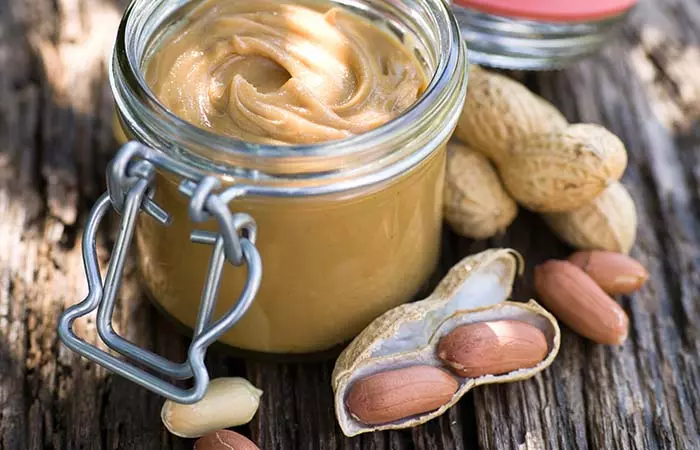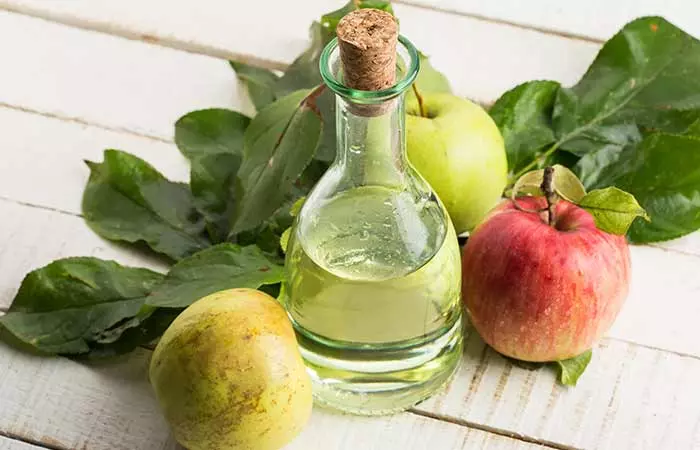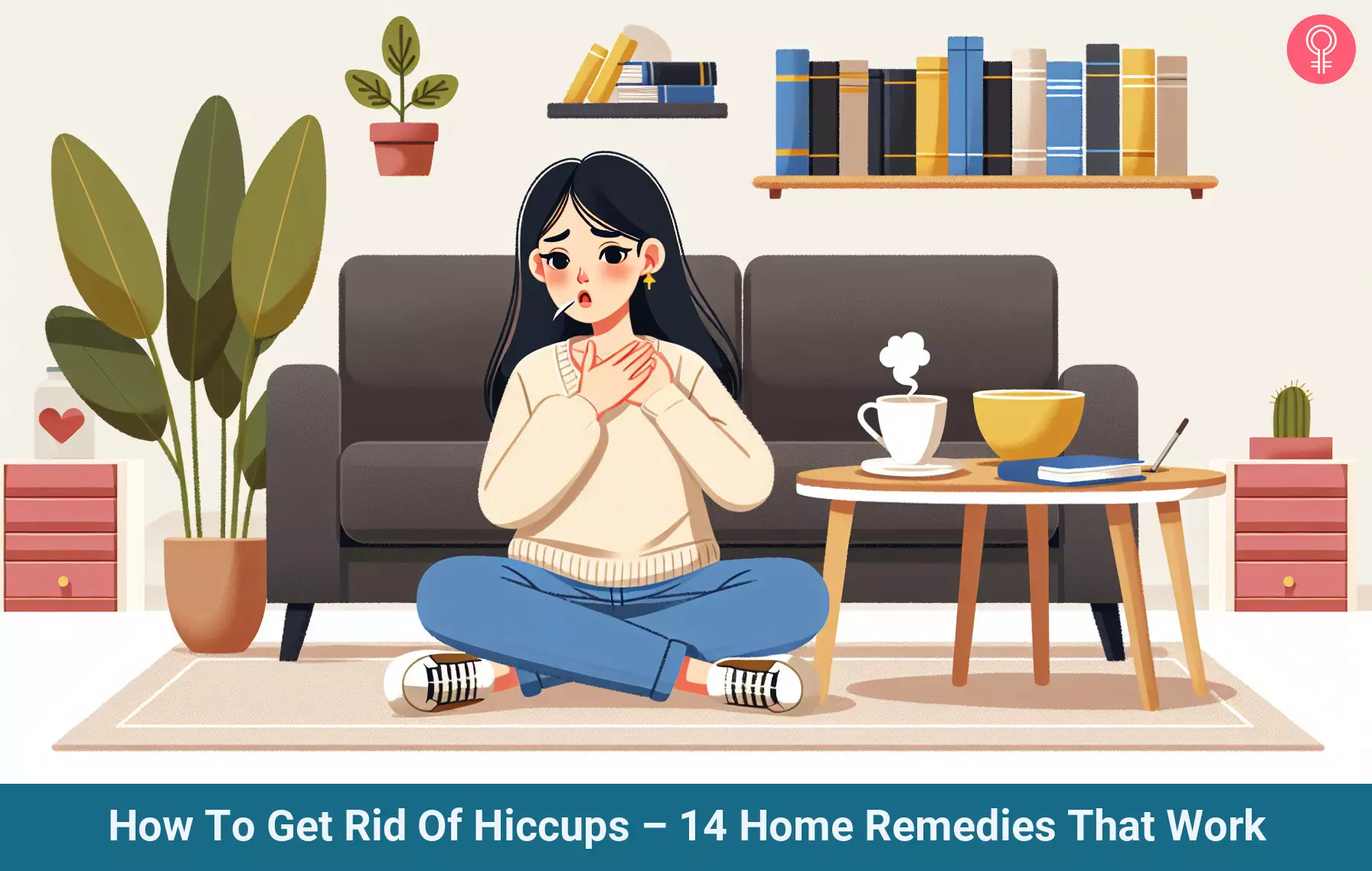Hiccups can occur due to various reasons. Eating too fast, overeating, or just a simple reflex action are some of the reasons behind them. But, with a few simple steps, you can control them easily. So, next time the hiccups hit, don’t be scared, be prepared. Check out the best home remedies for hiccups below!
Hiccups – What And How
Hiccups are a temporary condition caused during eating or drinking. They usually occur when the diaphragm contracts involuntarily (1). The diaphragm is the muscle that holds the lungs in place. The contraction results in a sharp intake of breath, which is stopped by the instantaneous closing of the glottis (or vocal cord). This entire process causes the hiccup, and the sound created by the process is what gives the hiccup its signature sound (2). Hiccups are a reaction to common digestive disorders or disturbances. When the digestive muscle experiences convulsionsi Rapid, involuntary muscle spasms or contractions that cause uncontrollable shaking with altered consciousness. , it pulls on the stomach causing it to draw in air. As air is a foreign entity in the stomach, the body responds to this condition by closing the glottis (cover of the air tract) causing the characteristic ‘hic’ sound.
Causes Of Hiccups
Hiccups can be caused by many reasons. We list here some commonly known ones:
1. Eating Too Fast
If you tend to gobble up your food and don’t have the time to chew, you can easily swallow air with your food, which results in hiccups.
2. Overeating
Overeating can increase your chances of contracting hiccups. Foods laced with fat, aerated drinks, sugar-laced beverages, and even excess alcohol can trigger hiccups.
3. Reflex Action
In some cases, the stomach is stretched. When you devour too much food and air you tend to hiccup. This hiccup sometimes occurs as a reflex action to prevent choking.
4. Medical Disorders
In some cases, medical conditions like renal failure, encephalitisi Inflammation of the active tissue of the brain due to a bacterial or viral infection or as an autoimmune response. , brain trauma, stroke, and brain tumor can lead to hiccups (3).
5. Nerve Damage
Sometimes, damage to the phrenic or vagus nerve can result in an unusually long bout of hiccups.
6. Acid Reflux
Acid reflux is one of the primary causes of hiccups. Many medications like Xanax, Valium and Ativan, have been known to cause hiccups. Other drugs that can lead to hiccups include nicotine (4), (5).
7. Toxic Fumes
Toxic fumes and poisonous gases can also result in hiccups.
8. GERD (Gastroesophageal Reflux)
This is usually most common in infants who are under one year old. Babies who suffer from excessive GERD can suffer from hiccups.
9. Stress
Sometimes, hiccups can also occur due to stress. Anxiety has been known to cause temporary hiccups, and in some cases, hiccups were found to last much longer than usual. Hiccups which continue for more than 48 hours are known as persistent hiccups. Sometimes, they can even last up to a month and are called as intractable hiccups. Both these kinds of hiccups present various associated health risks and should be examined by a doctor immediately. According to a study in StatPearls, it is estimated that 4000 admissions for hiccups occur annually in the United States. It is further estimated that the incidence of hiccups in people with advanced cancer and neurological conditions ranges between 4-9% and 8-10% for those with gastroesophageal reflux disease (GERD).
Causes Of Persistent Or Intractable Hiccups
1. Nervous System Disorders
Sometimes, nervous system problems like cancer, stroke, injuries, and other infections can lead to hiccups (6).
2. Metabolic Problems
For those suffering from low or high metabolic activity, hiccups can be a reasonably common occurrence. Other chemical problems like hyperventilationi A condition that causes deep or rapid breathing beyond normal levels, often due to an anxiety or panic attack. or reduced kidney functioning can also lead to hiccups.
3. Mental Health Problems
Hiccups can also occur in people who face persistent mental health issues like personality disorders, autismi A developmental disorder that impairs social behavior, i.e., the ability to learn, communicate and interact with others. , and in some cases even depression and anxiety.
14 Home Remedies To Get Rid Of Hiccups
Hiccups Remedies That Work
1. Honey For Hiccups
1 tablespoon honey If you find yourself hiccupping continuously, gulp down a tablespoon full of honey. Doing this once should stop the hiccups. Gulping down honey eases the hiccup sensation. The swallowing action, coupled with the warmth of honey, will relieve you of the hiccups (7).
2. Yogurt For Hiccups
1 cup plain yogurt 1 teaspoon salt
You should get relief within the first usage of this remedy. Just a few spoons of this mixture – that’s all you need for instant relief from those spontaneous ‘hics’. Anecdotal evidence shows that yogurt may help calm down the diaphragm and stop the hiccups. [ WATCH VIDEO: How Yogurt Helps Hiccups ]
3. Ice For Hiccups
Few ice cubes A glass of water
A glass of this chilled water will calm down the hiccups. Cold water is believed to shock the digestive tract and cure hiccups immediately (8). You might find yourself gasping for a few seconds, but this is nothing to be alarmed about. Take deep breaths to regain your normal breathing cycle. The hiccups will be gone in a jiffy! Also, when sipping the water, swallow the water with your chin touching your chest. This can help stop the hiccup reflex.
4. Sugar For Hiccups
1 teaspoon sugar Hold the sugar in your mouth for about thirty seconds while it dissolves, then chew, and swallow slowly. Repeat if required. Sugar is one of the oldest remedies for hiccups. This leads to excess sweetness in the mouth that is believed to be an excellent cure for hiccups (9).
5. Cardamom Powder For Hiccups
1 teaspoon cardamom powder 1 1/2 cups water
Powdered cardamom is known to offer relief from hiccups almost instantly. Cardamom powder may help relax the muscles of the diaphragm. Anecdotal evidence shows that it is one of the best ways to cure hiccups, this remedy works by flushing out excess alcohol from the system, relaxing the diaphragm muscles further.
6. Lemon For Hiccups
1 lemon wedge Sugar
Sprinkle sugar on the lemon wedge and bite into this. The hiccups will stop in a couple of seconds. The sour taste of this fruit helps to saturate the mouth and the digestive tract. It stimulates the nerves that are causing the spasm (2).
7. Water For Hiccups
3-4 glasses cool water Gulp down the cool water for a severe case of hiccups. A single time usage of this remedy is enough. A simple yet highly effective home remedy for hiccups is by drinking a glass of water, slowly. The swallowing mechanism relaxes the muscles of the diaphragm. It lengthens the gap between each hiccup and eventually relieves you of the hiccups. Holding breath after swallowing each sip for a brief period also helps.
8. Ginger For Hiccups
Ginger You can also brew some fresh ginger tea and sip it slowly. Ginger will relieve the hiccups in the first time. Ginger is an excellent remedy to get rid of the annoying hiccups. Its anti-inflammatory properties will relax the diaphragm muscle. Ginger is also good for hiccups caused by indigestion (10).
9. Asafoetida For Hiccups
1 teaspoon asafoetida powder 1 tablespoon clarified butter
Use this remedy as and when required. Though asafoetida, also known as ‘hing’ sounds like an unconventional remedy, it is a powerful agent that relaxes the muscles of the diaphragm (11). It is extremely potent and works really fast to provide rapid relief from hiccups.
10. Chamomile Tea For Hiccups
1 teaspoon dried chamomile herb or a chamomile tea bag A cup of hot water Few drops of lemon juice
A cup of chamomile tea should make the hiccups go away. Chamomile is a natural muscle relaxant that soothes the muscles in the diaphragm to ease contractions and controls hiccups (12).
11. Gripe Water For Hiccups
1 tablespoon gripe water 1 tablespoon water A dropper
Do not give more than recommended dosage to the baby. Consult your doctor if the hiccups persist. This remedy is excellent for infants and toddlers. It is used by mothers around the world to relieve hiccups and gas in their babies. It contains ingredients such as dill and ginger which are effective in stopping the hiccups (13). Make sure that the gripe water does not contain alcohol and also that your baby is not allergic to any of the other constituents.
12. Grape Jelly For Hiccups
1 tablespoon grape jelly Simply eat a tablespoon of this jelly. Repeat if required. While it is unclear how grape jelly works to cure hiccups, it is a remedy that is sworn by many people. It has been tested and tried by ‘hiccup sufferers’ everywhere. You can’t say no to grape jelly, right?
13. Peanut Butter For Hiccups
1 tablespoon of peanut butter Simply eat the peanut butter off the spoon. You can also use almond butter or even chocolate spread. A tablespoon should suffice. While trying to eat the peanut butter, your breathing patterns are altered putting an end to those hiccups. This is definitely the yummiest of all the remedies. Marilyn Nielson, a blogger, shared her experience of giving her kids a spoon of peanut butter whenever they had hiccups. She said, “I heard that suggested as a cure for the hiccups one time and we’ve done it ever since. I don’t know if it works; it seems to sometimes, but mostly they (the kids) just like it (i).”
14. Vinegar For Hiccups
1 teaspoon apple cider vinegar 1 teaspoon maple syrup A glass of warm water
Mix the vinegar and maple syrup in the warm water and drink this. You should get relief from hiccups with just a glass of this concoction. This warm drink not only stops hiccups but also soothes the throat (14). These remedies are excellent for the short-term and spontaneous hiccups. For persistent and intractable hiccoughs, the treatment can be different and usually depends on the source of the hiccup. People also opt for hypnosis or even acupuncture to treat persistent hiccups. Also, persistent hiccups lead to heartburn and indigestion. So, it’s helpful to know how to get rid of indigestion using effective remedies, such as ginger essential oil.
What Are The Symptoms Of Hiccups?
The peculiar ‘hic’ sound is the most typical symptom of hiccups. You may also experience some tightness in your chest or abdomen before the hiccup sound (2). If you experience hiccups frequently, the tips mentioned in the next section can help prevent them.
Tips To Prevent Hiccups
Here are some effective ways to prevent hiccups:
Breathe into a paper bag to relax your diaphragm. Inhale deeply and hold your breath. Sip cold water slowly to soothe diaphragm irritation. Swallow a teaspoon of sugar to stimulate the vagus nerve. Gargle with cold water to stimulate the vagus nerve. Apply pressure to the area above your upper lip. Avoid overeating. Limit carbonated beverages as they can trigger hiccups. Distract yourself with other activities.
There are some foods that you should avoid to ease your hiccups. Explore them in the following section.
Foods To Be Avoided
Hiccups are not the result of a bad diet, eating habits, or lifestyle. While there is no specific diet plan for those who are frequently afflicted with hiccups, there are a few foods one can avoid while experiencing this condition. These foods aggravate the condition and can prolong hiccups.
Some Other Facts About Hiccups
By now, you know how hiccoughs occur and how to treat them. Let’s look at some interesting facts about hiccoughs.
Hiccups can be treated in many ways like gulping water, pulling out the tongue, sucking on a lemon, and whiffing some smelling salt.
Doctors will usually refrain from prescribing you strong medications like haloperidol (Haldol), metoclopramide (Reglan) and chlorpromazine (Thorazine), even for persistent hiccups. Watch out for those doctors that do (15), (16).
Does holding your breath actually work to get rid of hiccups? It might offer temporary relief from hiccups. Mrinal Pandit, a registered dietitian and certified nutritionist, says, “This method increases the level of carbon dioxide in the blood, which might stop the diaphragm spasms that trigger hiccups.” Are hiccups serious? Generally, it is not a serious issue. However, you may have to be careful if it does not resolve within a few minutes. Mrinal Pandit says, “Chronic hiccups lasting more than 48 hours might indicate underlying health issues and should be evaluated by a healthcare professional.” Do hiccups affect the heart? Occasional hiccups do not affect the heart. However, Mrinal Pandit says, “Prolonged or chronic hiccups should be medically assessed, as they can indirectly cause stress or discomfort, potentially affecting individuals with pre-existing heart conditions.” Can hiccups make you sick? Prolonged hiccups can be irritating and may affect your quality of life. According to Mrinal Pandit, “If hiccups persist, they can interfere with eating, sleeping, and overall well-being, indirectly impacting health. Persistent hiccups warrant medical evaluation to rule out any underlying conditions contributing to the symptom.” How long can hiccups last? Hiccups can last anywhere between a few minutes to several weeks or months. Hiccups that last over 2 days are termed chronic or persistent hiccups. The longest known duration of hiccups is 60 years. How do you get rid of hiccups with pressure points? You can put pressure on TE-17, located in the hollows behind the earlobes, to get rid of hiccups. Other pressure points that may help get rid of hiccups include CV-12, P-6 (in combination with CV-12 and SP-36), CV-13, and SP-4. Are hiccups caused by a lack of oxygen? No, an irregular contraction of the diaphragm causes hiccups.
Illustration: How To Get Rid Of Hiccups – 14 Home Remedies That Work
Tired of those annoying hiccups? Say goodbye to the hiccup blues with the proven techniques shared in this helpful video that shares simple tricks and surprising remedies for hiccup relief. Cheers to a hiccup-free life!
